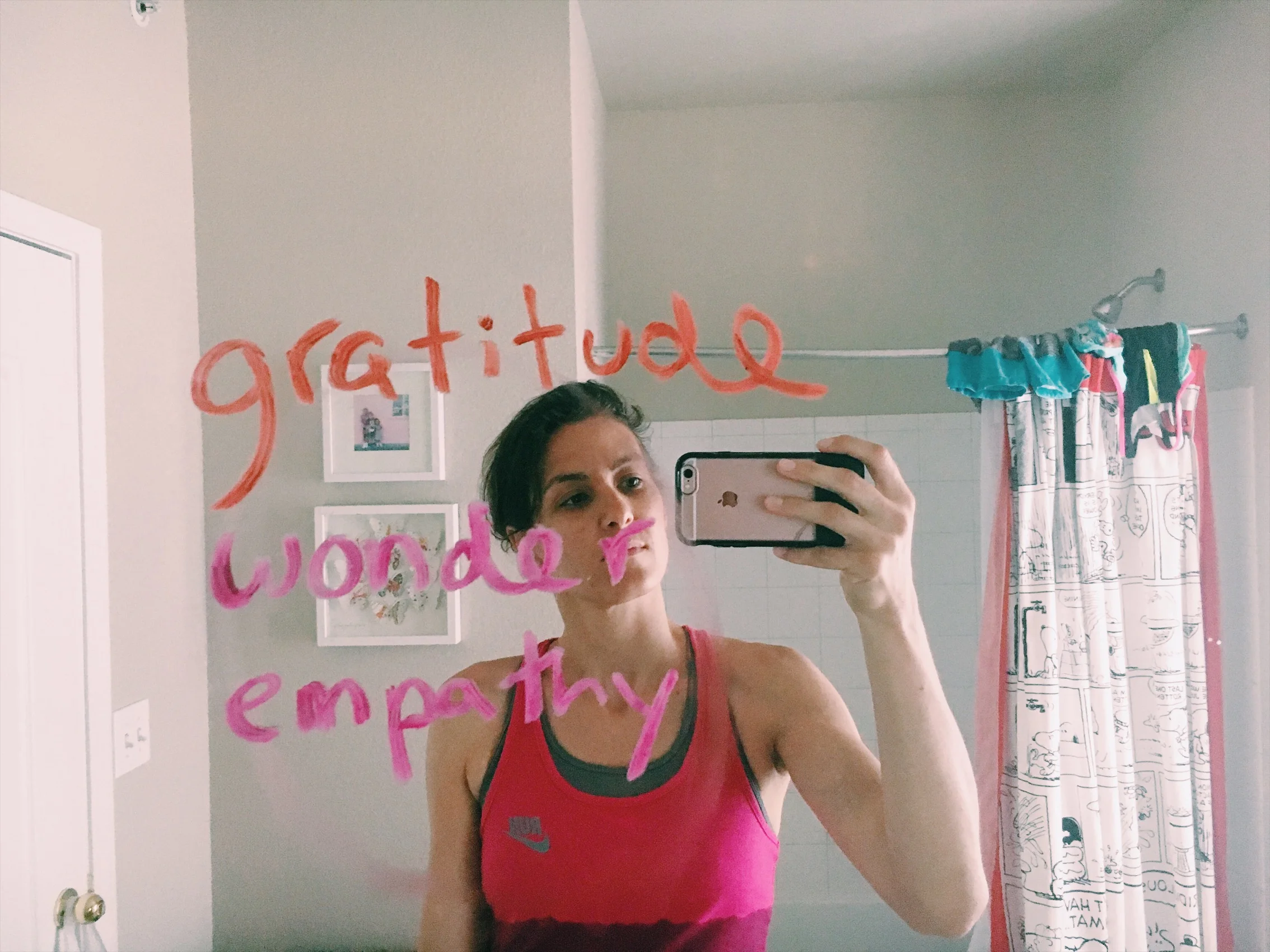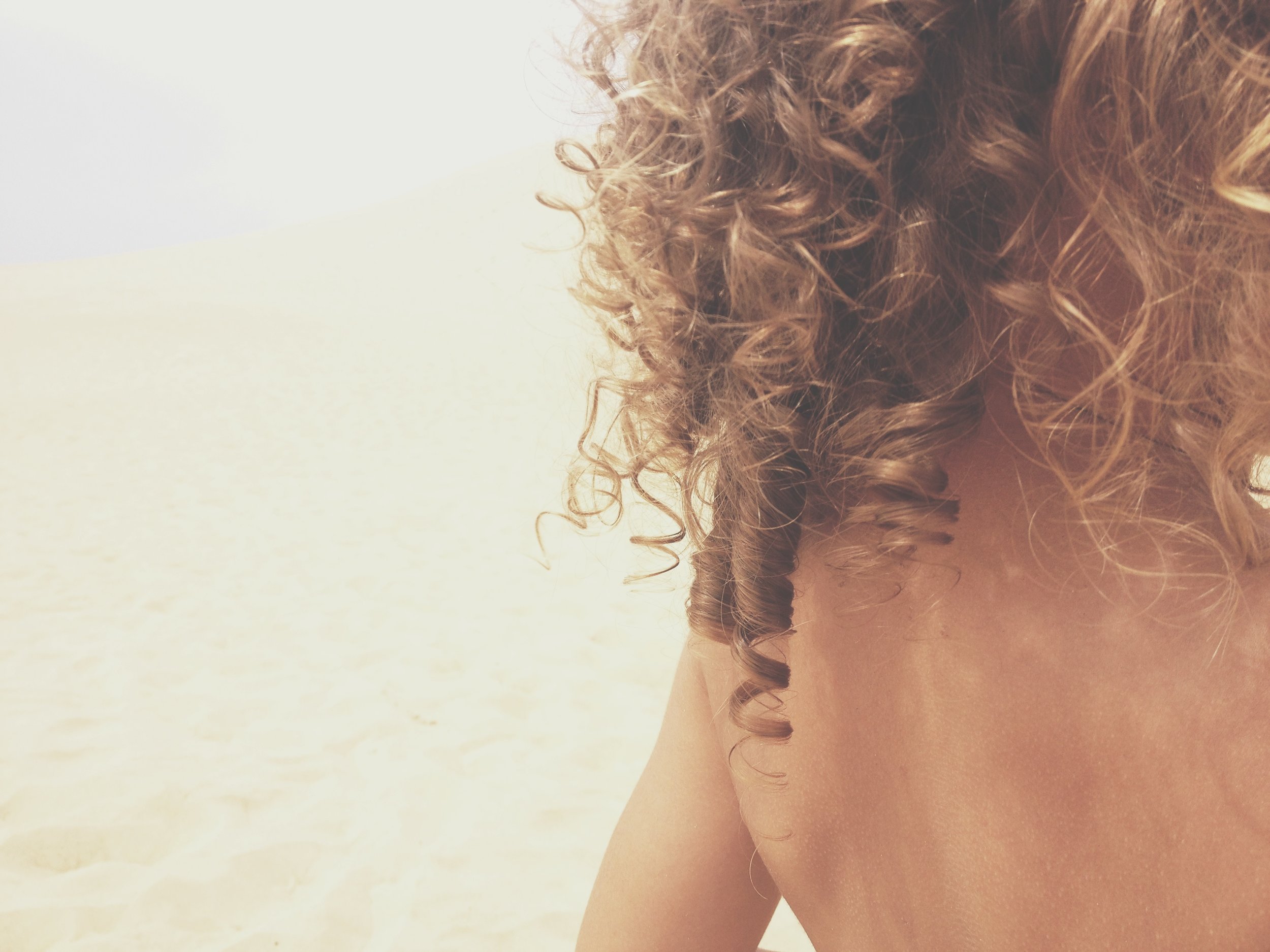A Quiet Place: Sound and silence
Monday, April 9, 2018
As I headed out to my car last night after the end credits rolled for A Quiet Place, I was hyperaware of the silence. I noticed every step I took, the slamming of my car door, the wind moving the bare branches. I got home and the door to my daughter's room creaked as I opened it to tuck her in before I went to bed—I died. I shuffled papers on the counter—I died.
What do horror movies rely heavily on? What, in fact, do all movies rely heavily on in order to tell you how to feel about what is happening? Sound and silence. The score in a film dictates the mood and can instantly trigger fear, joy, grief, etc. (merely playing the Jaws theme song induces a mild panic in me.) Likewise, silence in a film can be just as powerful. A Quiet Place takes this idea and runs with it, and does so brilliantly. It relies on silence to heighten the suspense and move the story forward. It uses silence as a photograph uses negative space, intentionally and artistically and to provide form. Everything that is not said is still conveyed.
It occurred to me that when we are forced into silence we are also forced into listening, into noticing and sometimes even into discomfort but hopefully, ultimately, deeper thought (I'm particularly reminded of Emma Gonzalez's speech at the March for Our Lives where she stood on stage, defiant and beautiful, in silence for several minutes for her friends. That was a stunning political moment.) Perhaps this horror flick that skillfully capitalizes on silence has something to say about being quiet in a world that is increasingly loud.
The year is 2020 when the movie begins. It is day 89 of the crisis brought about by these enigmatic creatures, who, as we quickly find out, cannot see but have impeccable hearing and incredible speed and who will, within seconds, devour you if they hear you. There are several stills of a littered and abandoned grocery store, fallen down streetlights, weeds growing in cracks in the road. It is clear: humanity has been mostly decimated by something vicious.
We follow the Abbott family as they are in what used to be a town as they look for antibiotics for the oldest boy, Marcus (Noah Jupe.) They carry backpacks and gather various items they need, communicating to each other with their eyes and facial cues or in sign language. They walk barefoot, on paths of sand that they've laid out in advance to soften their steps. They never, ever dare to speak, not out here. The mother, Evelyn (played by the incredible Emily Blunt) gingerly looks through bottles of pills, taking great care not to rattle the contents once she's found what she is looking for. Not a word has been said, and I am already scared for them.
What follows is one long held breath. Have you ever tried to keep quiet while someone is sleeping, moving about the room and opening drawers with great care, aware of every limb on your body, every inhale and exhale? The closing of doors and moving of clothes is all of the sudden almost comically loud and obtrusive. It is a painful slow motion with heightened and exhausting awareness.
That state is how they live, always: Evelyn lifts dinner out of an oven in the floor with deliberate concentration, the kids use patches of felt to act as Monopoly pieces, Morgan (Millicent Simmonds) follows patches of paint as cues to which floorboards are the least creaky, the single pointer finger is repeatedly held up to the mouth. You quickly begin to feel this sense of relentlessness—the constant demand for silence, agility, and awareness. In one rare scene in which speaking is safe, Evelyn wakes up and you can see that the engulfing anxiety never leaves her, even in her sleep. She asks her husband, Lee (also played movingly by John Krasinski), when she doesn't see her children in sight: "Where are they?! Where are they?!" You can imagine the toll that must take, how ragged their nerves must be. Except one doesn't even need to imagine it. The actors in this movie, having very few lines between them, had to harness heavy use of body language, facial cues, hand signals, and their eyes to tell a story, and they did so with perfection. I can't overstate just how good Emily Blunt is in this movie. I probably felt especially connected to her character as she is a mother and somehow conveys all of the earth's maternal love with an arm on her daughter's back, a hand on her son's cheek. She is desperately, achingly good. The sequence of scenes where she is birthing her baby are so raw and intense and fantastic that you want to release a scream for her, because, of course, no sounds are allowed. Still, one might fear that the lack of dialogue would lend to boredom, but that couldn't be further from the truth (remember Castaway?) The combination of a compelling narrative coupled with capable, thoughtful actors had me engrossed. I felt their fear, I was on that farm with them.
Speaking of the farm, I was struck by the visual beauty of the film juxtaposed with the horror of their everyday reality. Their house is rustic and wooden with patio type lights strung on poles throughout the property, probably not unlike what Kinfolk would use for a photoshoot (as you can guess, the lights serve a purpose in this setting, but they still lend to an idyllic picture.) They are surrounded by fields of corn and lush green trees; they catch fresh fish in a nearby river in handmade, wooden traps; Evelyn has a healthy tan and hangs their laundry out to dry in the fresh, clean air. Everything is beautiful, natural, untainted by chemicals and excess (until you remember that there is a flesh eating animal always lurking.) I can't help but wonder what this painted picture might say about humanity and nature, the environment—will it come down to a choice between the two? Can we ultimately not have both, at least not flourishing, at the same time? And which world would you rather live in? The overcrowded, smog filled version likely vexed with wars and conflict and natural disasters, or a more lonely, simple existence due to, say, an epidemic that brings with it perhaps cleaner air and only one job—survival?
This dystopian aspect brought about by these all-hearing monsters is largely what drew me to this movie in the first place. Although I'm not usually a fan of the horror film genre, I do love a good tale set in the dystopian future. But A Quiet Place is more in line with old school horror anyway (think The Mist or again, Jaws), rather than dealing with spiritual demons or gore for the sake of gore, which I typically don't care for. There's even a classic bloody-hand-smacked-up-against-then-slowly-slides-down-the-glass frame, which is used at the ideal moment and yet I didn't expect it because the film is not littered with typical horror tropes, lending this moment to feel fresh and perfectly placed. And this is what this movie does so well: it is story driven and character based—it marries solid, intriguing story with believable, complex characters and suspense through the medium of sound and silence rather than relying on tired and overused cliches. And it asks questions of us. Although I don't actually wish myself in any particular dystopian universes, the moral and intellectual and practical challenges that inevitably accompany dystopia never become uninteresting. I find myself asking: what would I do if I were in this situation? How would I react? Who would I reveal myself to be?
Evelyn asks a similar question of herself and Lee as they consider the ever present threat in that world of losing their children, a parent's absolute worst fear, no matter their reality: "Who are we if we can't protect them?"
I do take issue with one thing in the movie. There is a scene where Lee and Marcus encounter a man in the woods (not Justin Timberlake though) and he intentionally screams to attract the creatures (this was in one of the trailers so I'm not ruining anything.) It's certainly possible and even implied that the man was so strung out from the stress of his reality, the ragged nerves I referenced earlier, that he just wanted out. What's unclear is why he did it at that particular point in time, and by doing so put Lee and Marcus in harm's way, and why he picked that specific route: like, dude, pick a less violent end, no? It just felt slightly out of place, not necessarily in that world, but in this particular story I'm not sure it was a necessary addition.
Despite that one snag this movie was truly well done. It was visually and sonically captivating and captured the fear in a palpable way but also included much needed moments of the ever hopeful spirit of humanity in the face of desecration. There are several sweet scenes: Evelyn and Lee dancing with earbuds in the basement, his hands on her swollen belly, surrounded by ominous newspaper clippings and radio transmitters, quietly (always quietly) trying to forget for a moment. Evelyn with Marcus, teaching him how to divide, joking with him that he has to learn how to be self sufficient so he can take care of her when she is old and has lost all her teeth. It's a movie about loss and love and sacrifice and family and how to live when living feels, and practically is, impossible.
It's also a movie about monsters and delightfully scary as hell.
*Photo credit John Cournoyer and Paramount Pictures





